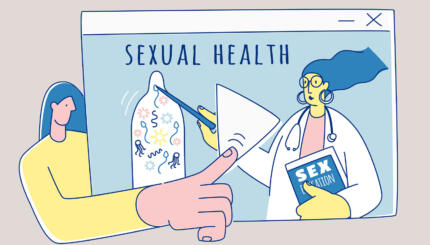High school years are full of changes. New interests, new friends, new classes—and a new body. Well, not new, exactly, but different. Some of the changes you see happening to your appearance are awesome; some, you’re not so sure about. When things change, it’s natural to seek confirmation that the new reality is OK. Maybe you look to an older sibling or your friends for guidance on how you “should” look. Or maybe you compare yourself to celebrities on social media and on TV. But ultimately, it’s up to you to feel good about your body, whatever your shape and size. A positive body image plays a major role in your overall wellbeing. Here’s how to cultivate the right attitude.
The Importance of Body Image
Having a positive body image goes far beyond feeling confident in a new pair of jeans. People with a healthy body image have greater self-esteem, are more likely to exercise, less likely to abuse alcohol and drugs, and have a lower rate of both depression and eating disorders, says Meghan Gillen, Ph.D., an associate professor of psychology at Penn State Abington.
Factors that Affect Body Image
No surprise, outside influences can rattle your body image. TV, movies, and magazines often show images of unrealistic body types (meaning only a very small percent of people are genetically wired to actually look this way). Unfortunately, that look is promoted as “normal,” leading nearly half of girls age 13 to 17 to wish they were as skinny as the models they see in fashion magazines, according to a national study.
Your Snapchat and Instagram accounts could also be bringing your body image down. Scrolling through a feed of photoshopped and filtered images skews your perception of how bodies should look, making you feel anxious about posting your own selfies. In fact, a nationwide poll found that 27 percent of teens say they are stressed out about how they look in the pictures they post.
How to Boost Body Image
The easiest way to turn around negative thoughts about how your body looks is to focus on positive ones about what your body does. One way to do this: Keep a journal. Jot down great things your body did for you this week: Maybe you scored a goal during a big soccer game, or lifted heavy boxes while helping a friend move, or sprinted to catch the bus, or had fun dancing around to music. A healthy, strong body is a gift we sometimes take for granted.
Next, disengage from negative body talk. If a group of friends is constantly putting themselves down, consider sitting with another crowd at lunchtime. Even better, speak out against it. Share your struggle to end the self-bashing, and encourage your friends to join you. You might feel self-conscious speaking out, but your honesty will encourage peers to re-think their attitudes as well.
Inevitably, even when you are working hard to stay positive, a negative thought about your appearance will creep in. At these moments, talk to yourself in a kind, gentle tone. “I call it using your BFF voice,” says Barb Steinberg, LMSW, a teen life coach for girls in Austin, TX. “Imagine what you’d tell a good friend if she said the same mean things about her own body.” Chances are, your inner dialogue will become much more compassionate!
Finally, take a break from Instagram or Snapchat for the weekend. “I’m seeing more and more teens who are self-policing their time on social media,” says Steinberg. “A lot of them say that they feel better because they have less noise coming at them and fewer images to compare themselves to.”
When to Get Help
“If negative thoughts about your body are impacting your daily life—you’re avoiding social interactions, for example—then it’s a good idea to seek help,” says Virginia Ramseyer Winter, Ph.D., an assistant professor at the University of Missouri School of Social Work. It’s also wise to talk to a parent, school counselor, rabbi, or another trust-worthy adult if your body image is causing you to significantly change your eating or exercise behaviors. If you’re not comfortable speaking to someone in person, the National Eating Disorders Association helpline (1-800-931-2237) is a good place to turn.
Your body will continue to change as you get older. Establishing a positive self-image is key not just for right now, but for helping you feel happy and confident for the rest of your life.
Special thanks to our experts:
Dr. Meghan Gillen, Ph.D., associate professor of psychology, Penn State Abington
Barb Steinberg, LMSW, teen life coach for girls
Dr. Virginia Ramseyer Winter, Ph.D., assistant professor, University of Missouri School of Social Work






